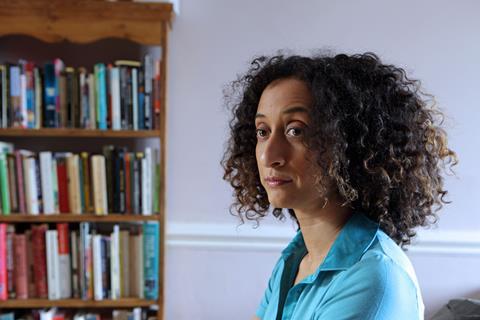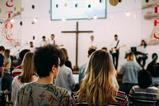‘Britain’s strictest headteacher’ is in court over the decision to ban Muslim pupils from praying during their lunchbreak. Christians should defend the rights of other religions to pray, says Danny Webster

Should prayer be banned in schools? “Of course not!” comes the immediate reflex response. But it’s a relevant question, because schools are not the first place in recent months where prayer has come under legal scrutiny.
Prayer in the vicinity of abortion clinics in both England and Scotland is being restricted (although draft guidance in England suggests silent prayer might not be banned after all). The implementation of these buffer zones is causing all sorts of preposterous questions being asked by the police about what’s going on inside someone’s head:
The latest furore has erupted after a school in London banned all prayer rituals and declared themselves an entirely secular institution.
The school in question already has some notoriety as its led by Katharine Birbalsingh - dubbed Britain’s strictest headteacher - and it achieves remarkable educational results. Michaela school is in court defending their policy against a claim that it is discriminatory and breaches pupils’ freedom of religion. We await the judgment.
The facts of the case are these. Around half of pupils at Michaela are Muslim. In March last year, a pupil began using her blazer as a prayer mat to pray in the school playground during her lunch break. The number of children praying in this way quickly grew to around 30 people.
According to Birbalsingh, the decision to ban prayer was taken in the context of “events including violence, intimidation and appalling racial harassment” of teachers. The ban was also backed by the school governors.
The pupil in this case had brought in a prayer mat to use during the lunchtime prayer session, which at this point was not allowed. An altercation followed, and the pupil was suspended for two days due to rudeness.
In instituting supposed “secular neutrality” the school is elevating unbelief into a position of triumph over faith groups
Following the ban on prayer, there were accusations of Islamophobia directed at the school, which was accompanied with vandalism and bomb threats. The school had to hire security guards and end term two days early. Such a response is clearly unacceptable. Pupils should not be pressurised into praying or pushed to withdraw from the choir as accounts suggest happened at this school.
It is understandable that the school sought to reduce and mitigate any tension between pupils of different religious groups. However, the way the school has gone about this is to suggest that there is no significance in the religious beliefs of pupils. In instituting a fierce form of supposed “secular neutrality” it is elevating unbelief into a position of triumph over any faith groups. And this is the substantive issue at the heart of this controversy, and one which to Christians should be a matter of deep concern.
Secularism is not impartial, and attempts at neutrality even when well intentioned are practically impossible. If the focus is on regulating practices and outcomes then it leads to a never-ending game of catch up correcting for one situation after another which might be unequal. You may choose not to hold a homework club on a Sunday out of respect to Christians. But you can’t hold it on a Friday, because Muslims are attending Friday prayers. And you can’t hold it on a Saturday because that’s the Jewish Sabbath. And so it goes on…
Michaela school seems to think the best option is to ditch religion altogether, but that just elevates the non-religious worldview of secularism above them all.
Secularism is still a worldview. The idea that its neutral is just as much an illusion as the unicorn my daughter might want for her fourth birthday.
Reading more into how the school operates it is interesting that lunchtime isn’t considered a break or free time, but as part of the school programming, thus in their minds justifying more stringent rules. The school appear to have rejected compromises that would have provided a classroom for prayers on the basis that this would divide the school along religious lines.
I think there is something more dangerous than dividing pupils along religious lines and that is erasing religion altogether. In pretending that people do not belong to different religious groups it seizes authority over what matters most. The school is trying to homogenise pupils’ public profession of belief by removing any. It would do far better by seeking to accommodate diverse expressions of belief and provide a space for pupils to understand each other.
The two most common responses to diversity of belief in society is to try and remove it, as in this case, or to blend it into a multi-faith fruit salad of belief. A third and harder but surely better way is to work for a pluralism that recognises difference, is unafraid to critique beliefs and practices, but adamantly defends the right of others to hold and live out their beliefs.






































3 Readers' comments